Hague ruling on Kosovo has limited legal impact
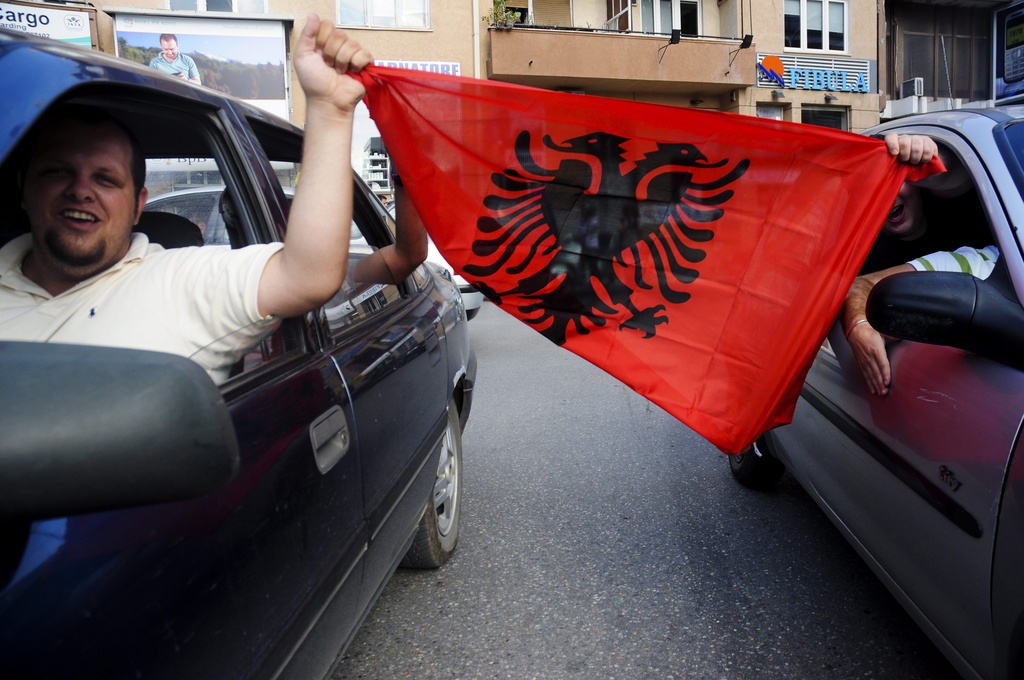
A decision by the International Court of Justice (ICJ) stands to reason, but it leaves many open questions, according to a Swiss legal expert.
Jörg Künzli, a professor of law at Bern University tells swissinfo.ch that a settlement between Serbia and the authorities in Pristina have to take into account political aspects.
The court in The Hague on Thursday found that international law does not forbid declarations of independence in reference to a declaration of Kosovo’s parliament in February 2008 to proclaim independence from Serbia.
Although the court ruling is legally non-binding, the move is widely seen as a defeat for Serbia.
The authorities in Belgrade for their part have defended their position and said they will never recognise Kosovo’s declaration. They said they would consider further steps.
swissinfo.ch: How much of a surprise is the ruling by the ICJ?
Jörg Künzli: I did not expect such a straight statement. The wording of the court decision is partly explained by the limited scope of the ruling.
The judges did not rule on the question whether the former Serbian province has a right to split from Belgrade. They also avoided the question whether there is legal basis in international law for secession.
Note that the court did not take a legal stand on the impact of Kosovo’s declaration of independence. It did not say whether the former Serbian province is a state.
The statement does not say neither whether it is compatible with international law if other states recognise Kosovo’s independence.
swissinfo.ch: Does the ruling make sense from a point of view of international law?
J.K.: I believe so. But it appears that the statement is the biggest common denominator the judges were able to find. The expert assessment tries to dodge the contentious issues.
The question about the origin of a new state remains primarily a political issue. International law has a limited role in this respect.
swissinfo.ch: Is it a balanced ruling and to what extent is it a purely legal assessment. Or is it based on political considerations and facts on the ground?
J.K.: The expertise is very much focused on this specific case.
There are explanations which refer to international law but the judges indeed based their opinions on resolutions by the United Nations Security Council and examined whether this body had outlawed the declaration of independence.
This procedure certainly makes sense but it highlights the specific nature of the ruling.
swissinfo.ch: Does it not set a precedent for other breakaway regions?
J.K.: Every independence declaration is a particular case. I’d say there is strong intention by the ICJ to limit the prejudicial impact of the ruling.
It has arguably set a precedent in some ways but it does not give the green light for all other independence movements.
The crucial question for a separatists is how to constitute a new state. But the court refuses to give an answer to this.
swissinfo.ch: It was generally expected that the court would make a ruling that allows all sides in the conflict to save their faces. Is it therefore a courageous decision by the ICJ?
J.K.: You could call it a courageous decision. The price that came with it is that the court refused to take a stance on the contentious issues.
To put it simply: The judges limited themselves to say that international law allows declarations of independence up to the point where they are not outlawed.
The court also mentions examples of declarations of independence, for instance Northern Cyprus, which were banned by the UN Security Council.
swissinfo.ch: Is an international court in a position to settle conflicts of such a dimension?
J.K.: I’m convinced that it is possible in principle. But it is difficult legal ground between self-determination of peoples and territorial integrity. International law in this respect is somewhat unchartered territory.
What is missing is the steering function of international law. It defines a broad framework. But it is above all the political facts which have to help find a solution in a particular case.
Gaby Ochsenbein, swissinfo.ch (adapted from German by Urs Geiser)
12th century: Kosovo sits at the heart of a Serbian empire.
1389: Serbs lose battle of Kosovo Polje to Ottoman Turks. Ethnic balance shifts toward Muslim and Albanian over the centuries.
1913: Serbia regains Kosovo after Balkan wars.
1974: Kosovo becomes an “autonomous province” of Serbia in new Yugoslav Constitution.
1989: Serbian President Slobodan Milosevic seeks to reduce Kosovo’s autonomy.
1997: Kosovo Liberation Army (KLA) emerges to fight a guerrilla war against Serb forces.
1998: Milosevic’s forces brutally repress the KLA and its supporters. Thousands of Albanians die.
1999:
June 10: Nato strikes force Belgrade to withdraw from Kosovo.
June 11: Serbs and other non-Albanians flee fearing reprisals.
2005:
November: Kosovo parliament pushes for independence. Switzerland becomes first country in the world to call for it.
2007:
March 26: UN Security Council, Americans and Europeans support plan for independent Kosovo with international supervision. Russia and Serbia object.
2008:
Feb. 17: Kosovo declares independence. Serbia and Russia reject it. Switzerland among first to recognise it. Serbs recall ambassador to Bern.
October: Serbia asks International Court of Justice (ICJ) to rule on legality of Kosovo independence.
2009:
June 4: Kosovo joins International Monetary Fund (IMF) and World Bank.
December 1: ICJ opens hearings on Kosovo independence.
2010:
July 22: Court rules that the secession did not violate international law.

In compliance with the JTI standards
More: SWI swissinfo.ch certified by the Journalism Trust Initiative


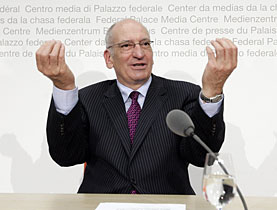
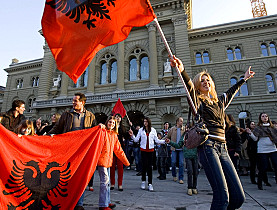
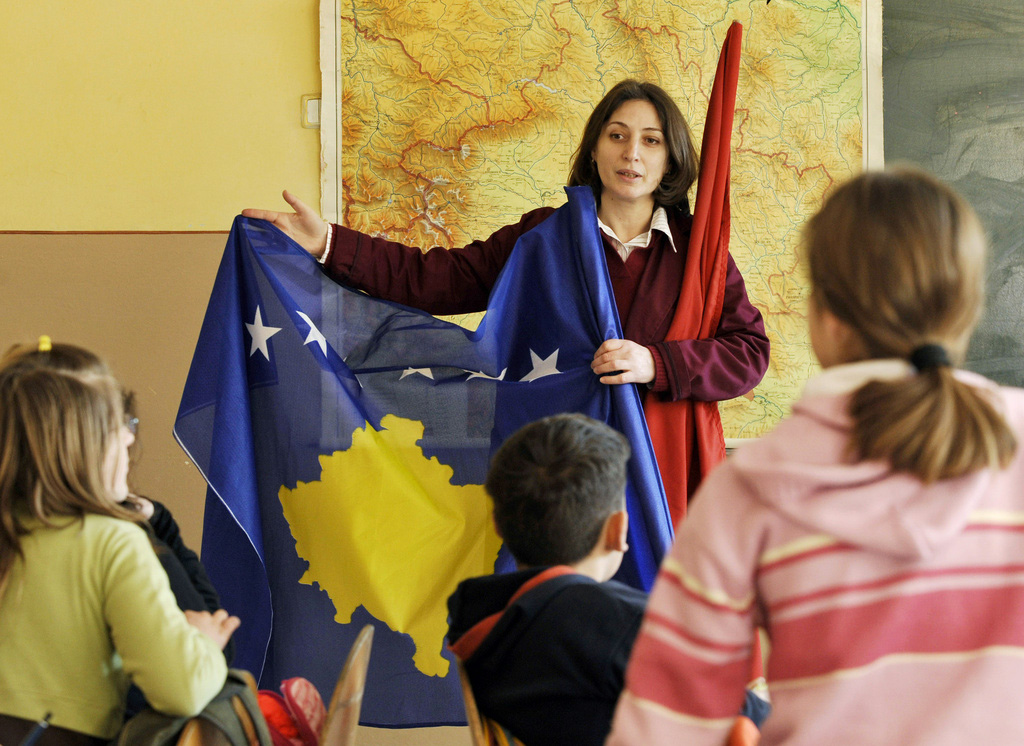
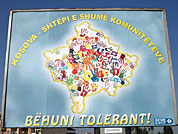
You can find an overview of ongoing debates with our journalists here. Please join us!
If you want to start a conversation about a topic raised in this article or want to report factual errors, email us at english@swissinfo.ch.